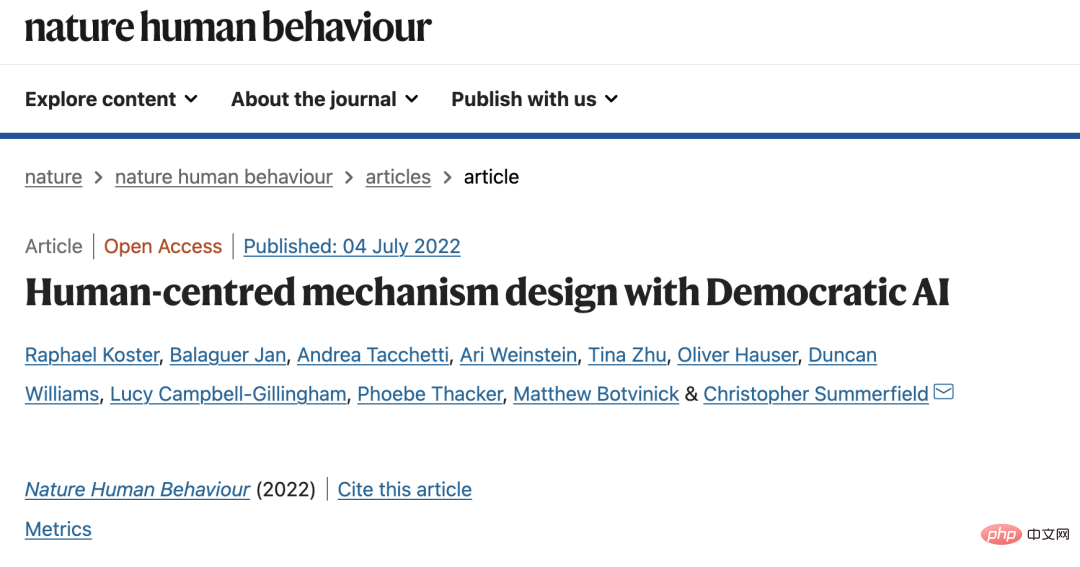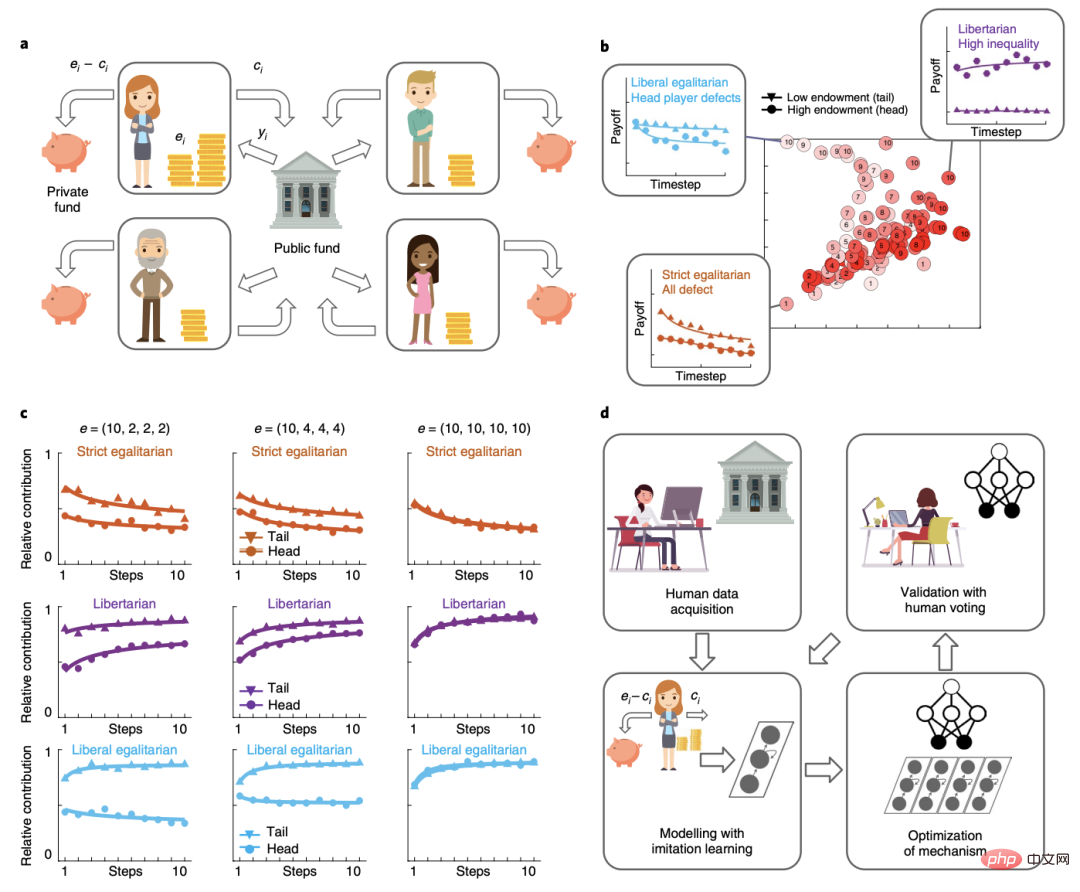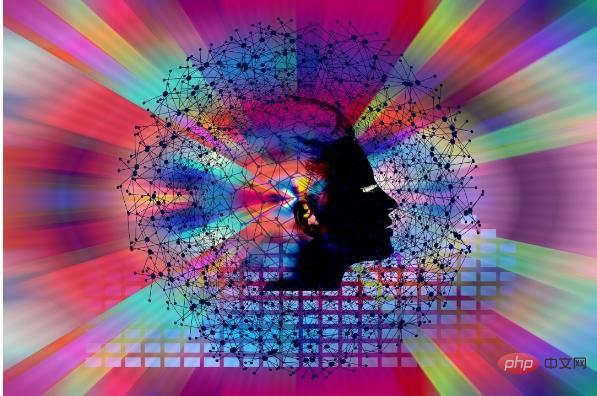
Can artificial intelligence (AI) push human society into a truly intelligent era?
Although after more than 60 years of development, the artificial intelligence industry has made breakthrough progress and is widely used in all aspects of economy and society, building an artificial intelligence system that is consistent with human values is still an unresolved issue. The problem.
Now, a latest study from the British artificial intelligence company DeepMind may provide a new way of thinking for practitioners in the artificial intelligence industry to solve this problem.
According to reports, DeepMind’s artificial intelligence system not only learned to formulate policies on how to reallocate public funds by learning from more than 4,000 people and in computer simulations in a 4-player online economic game, but also performed Very good, beating other human players.
The game involves players deciding whether to keep a monetary donation or share it with others for the collective good.
The relevant research paper, entitled "Human-centred mechanism design with Democratic AI", was published online on July 5 in the authoritative scientific journal Nature Human Behavior .

##Source: Nature Human Behavior
Annette Zimmermann, assistant professor at the University of York in the United Kingdom, warned, "Don't narrowly equate democracy with a 'preference satisfaction' system that finds the most popular policies."
She also said that democracy is not just about getting the best possible implementation of your favorite policies - it is about creating a process in which citizens can engage and deliberate with each other as equals.
The ultimate goal of artificial intelligence research is to build technologies that benefit humanity—from helping us complete daily tasks to solving major problems facing society Survival challenge.
Today, machine learning systems have solved major problems in biomedicine and helped humans deal with environmental challenges. However, the applications of artificial intelligence in helping humans design fair and prosperous societies have yet to be developed.
In economics and game theory, a field called mechanism design studies how to optimally control the flow of wealth, information, or power among incentivized actors to achieve desired goals.
In this work, the research team tried to prove that deep reinforcement learning (RL) agents can be used to design an economic mechanism that can obtain the preferences of the motivated population.
In this game, players start with different amounts of money and must decide how much to contribute to help better develop a public fund pool, and eventually receive a portion in return, and will involve repeated decisions about whether to keep a Make a monetary donation or share it with other players for potential collective benefit.
The research team trained a deep reinforcement learning agent to design a redistribution mechanism that shares funds to players under conditions of equality and inequality of wealth.
Shared revenue is returned to players through two different redistribution mechanisms, one designed by the artificial intelligence system and the other designed by humans.

##Picture|Game Design (Source: Nature Human Behavior)
In the policy formulated by artificial intelligence, the system will reduce the wealth gap between players by reallocating public funds according to the amount of start-up capital contributed by each player. However, the research team also warned that their research results do not represent a recipe for "AI government", nor do they intend to build some artificial intelligence-driven policies specifically for policy making. Tool of. The findings show that artificial intelligence systems can be trained to meet democratic goals by designing a mechanism that humans significantly prefer in an incentive-compatible economic game. Source: Pixabay Another open question Yes, will people trust the mechanisms designed by artificial intelligence systems. If the identity of the referee is known in advance, players may prefer a human referee to an AI acting referee. However, people also tend to trust AI systems when they believe a task is too complex for humans. Is it trustworthy?
In this work, the research team used artificial intelligence techniques to learn reallocation schemes from scratch, an approach that eases the burden on artificial intelligence researchers - who themselves may be biased or not representative of the broader population - The burden of choosing a domain-specific target for optimization.
This research effort also raises several questions, some of which are theoretically challenging. For example, one might ask whether it is a good idea to emphasize democratic goals as a method of value calibration. The AI system may have inherited a tendency from other democratic methods to “empower the many at the expense of the few.” This is particularly important given the pressing concerns that AI could be deployed in ways that exacerbate existing bias, discrimination or inequity in society. 

Also, would players react differently if these mechanics were explained to them verbally, rather than learned through experience. A large body of literature shows that people sometimes behave differently, especially with regard to risky choices, when mechanisms are described "based on description" rather than "based on experience." However, the mechanisms designed by AI may not always be expressible in words, in which case it seems likely that the observed behavior will depend entirely on the choice of description adopted by the research team.
At the end of the paper, the research team also emphasized this finding and stated that they support some form of "artificial intelligence governance," in which autonomous agents make policy decisions without human intervention.
They hope that further development of the method will provide tools that can help solve real-world problems in a truly human way.
The above is the detailed content of DeepMind's latest research: AI defeats humans and designs a better economic mechanism|Nature sub-journal. For more information, please follow other related articles on the PHP Chinese website!
 Application of artificial intelligence in life
Application of artificial intelligence in life
 What is the basic concept of artificial intelligence
What is the basic concept of artificial intelligence
 What skills are needed to work in the PHP industry?
What skills are needed to work in the PHP industry?
 How to use Java switch
How to use Java switch
 How to set startup items at startup
How to set startup items at startup
 What are the search sites?
What are the search sites?
 The difference between counta and count
The difference between counta and count
 Why can't I delete the last blank page in word?
Why can't I delete the last blank page in word?




